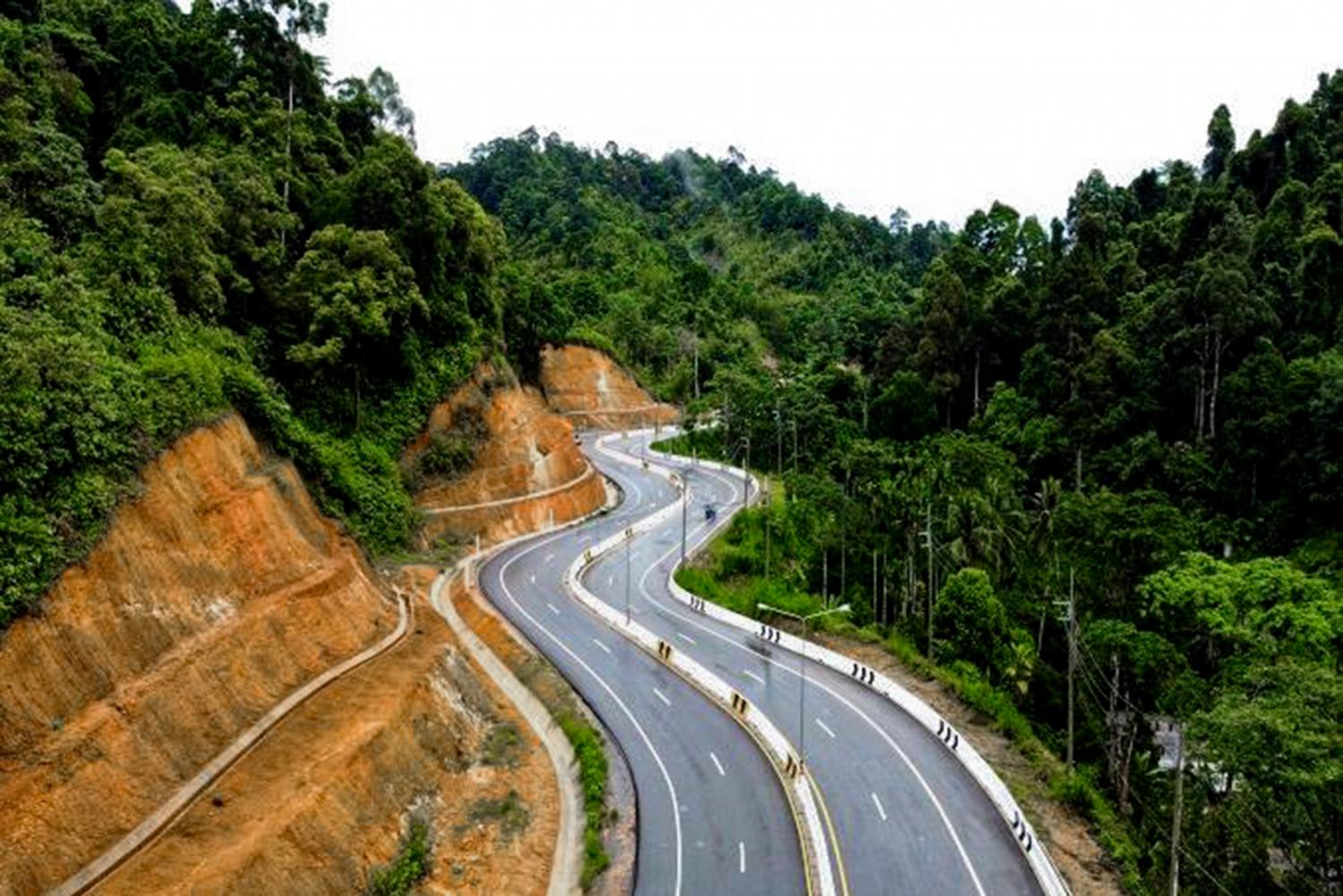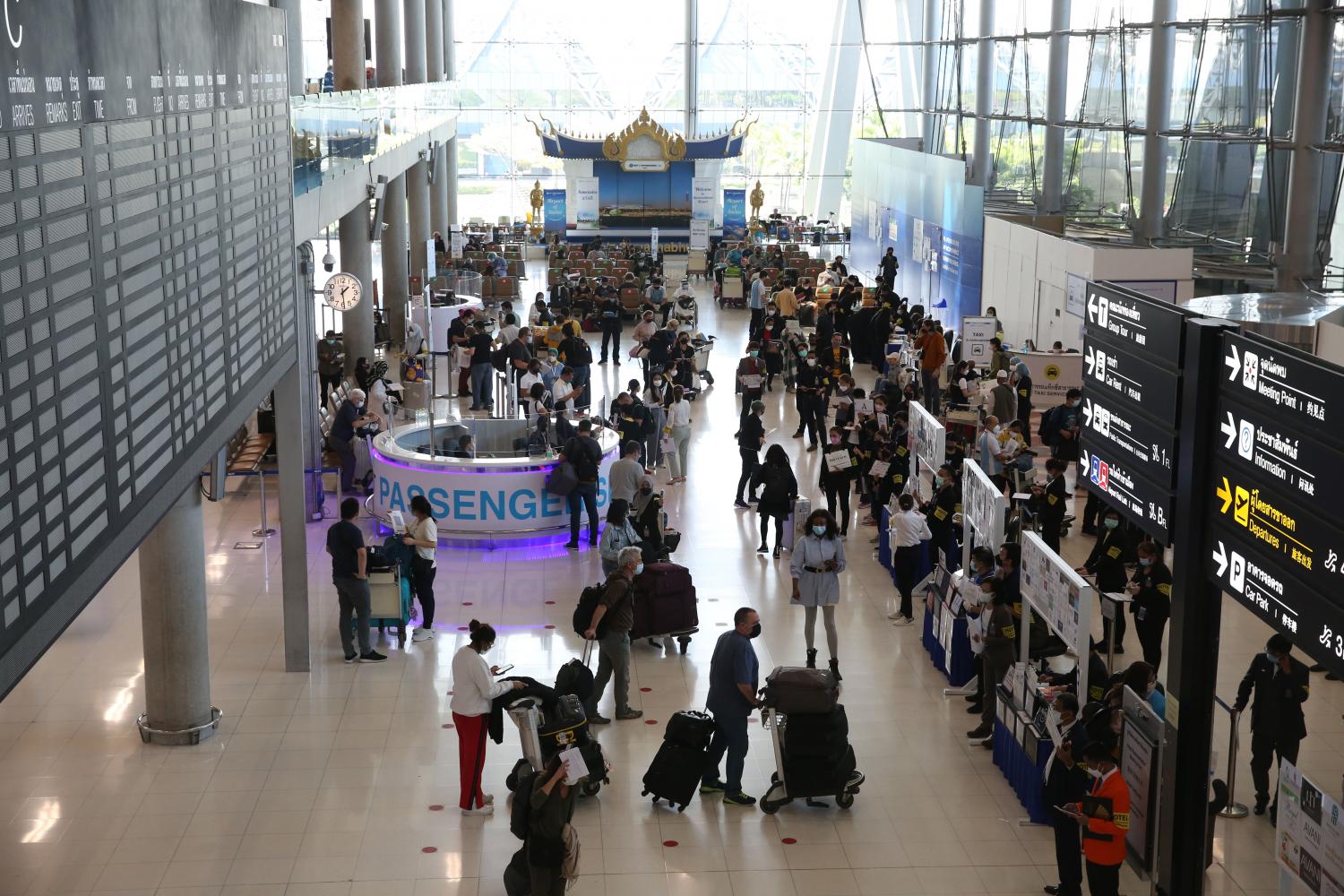
The government aims to accelerate state investment this year to provide a tailwind to propel economic growth momentum.
Finance Minister Arkhom Termpittayapaisith said he expects the economy to expand 3-4% in 2023, with growth driven by the government's plan to speed up state investment in key infrastructure projects.
According to Fiscal Policy Office (FPO) director-general Pornchai Thiraveja, state agencies set a combined investment budget of 664 billion baht in fiscal 2023, accounting for 20.9% of total state spending.
Among the most crucial projects are the Highways Department's construction of new highways and the Royal Irrigation Department's development of new water source areas.
Projects also include those for the Department of Public Works and Town & Country Planning, such as the construction of embankments along the country's rivers.
The ministry set a target for state agency budget disbursement in fiscal 2023 of 93% of the total budget, with a minimum of 75% set as the target for disbursement of the investment budget.
The country's 43 state enterprises are projected to invest a total of 282 billion baht in their projects in fiscal 2023. According to the ministry's target, the agencies should disburse at least 95% of the budget.
The State Railway of Thailand set an investment budget of 49.2 billion baht this year, while the Electricity Generating Authority of Thailand targets investment of 31.5 billion.

The Mass Rapid Transit Authority of Thailand plans to invest 14.2 billion baht, while Airports of Thailand submitted an investment budget of 12 billion.
The Expressway Authority of Thailand plans to invest 11.2 billion baht in the fiscal year.
The ministry is working on accelerating the investment of state agencies and state enterprises, said Mr Pornchai.
The FPO estimates public investment in 2023 will expand 2.5% year-on-year, in a range of 1.5-3.5%.
He said state investment would stimulate demand for products and services in several related sectors, generating new jobs.
State investment in transport systems can save on the cost and time involved in travel, while also creating new linkages between the country's regions that better distribute economic activities, said Mr Pornchai.
State investment in key transport infrastructure and financial systems will also help bolster the country's competitiveness and save on costs for businesses in the long run, he said.

ALIGNING INVESTMENT
Setting up clear policies should stimulate the investment climate here, enabling the private sector to determine their investment policies and align them with state outlays, said Mr Pornchai.
The government also focused on investment in digital infrastructure to provide coverage across the country, including supporting the expansion of the 5G technology network nationwide.
Another state project involves submarine cables, with the aim of turning Thailand into Asean's digital hub. This project was accelerated in response to behavioural shifts caused by the pandemic.
If all these state investments can increase economic growth, the government should be able to collect more revenue, giving the country stronger fiscal status, he said.
In terms of private investment, the Board of Investment granted approvals to 1,197 projects worth 503 billion baht during January to September 2022, up 43% year-on-year.

Investments made in services and utilities, valued at 226 billion baht, represented the largest share at 45%. This was followed by investments in metal products, machinery and transport equipment at 14.4%, tallying 72.2 billion baht, then chemical products, plastic and paper at 10.8%, totalling 49.2 billion.
The government launched a five-year strategy to support investment, which begins this month.
In addition to foreign investment, overseas firms are keen to establish manufacturing bases in Thailand in many sectors.
Chinese electric vehicle (EV) manufacturer BYD Co signed a land purchase deal last year with WHA Corp, Thailand's largest industrial estate developer, to build the company's first EV production plant in Southeast Asia.
The plant is expected to start operating in 2024 with an annual capacity of 150,000 vehicles, mostly for export to other countries in Southeast Asia as well as Europe, the companies said in a joint statement.
Last year AWS, Amazon's cloud computing division, announced its plans to make a large investment in cloud computing infrastructure in the country.
However, Mr Pornchai said downside risks could affect private investment, such as the impact of geopolitical conflicts and the trend of interest rate hikes worldwide.
He believes private investment will expand this year, in line with the improvement in economic activities and the return of foreign tourists to the country.
Krungthai Compass, a research unit under Krungthai Bank, expects foreign tourist arrivals in 2023 to reach 22.5 million, up from 10.2 million estimated for last year.
The research house forecasts it will take two years to tally roughly 40 million, the level posted in 2019, the last year before the pandemic.
For arrivals this year, Krungthai Compass anticipates 4.8 million visitors will be Chinese nationals, a 20% increase from its previous forecast of 4 million, attributed to China's reopening from Jan 8.
The research house predicts Thai GDP growth of 3.4% this year, rising slightly from an estimate of 3.2% for 2022.

ACCELERATING DISBURSEMENT
Kulaya Tantitemit, director-general of the Comptroller-General Department, said earlier the department accelerated the disbursement of funds for contractors working on state projects and reduced obstacles that were delaying disbursement.
The department recently proposed to the finance minister an amendment to the state procurement law regarding private bidders' appeals against bidding results when they fail to clinch contracts.
These appeals delay projects by at least three months.
Budget disbursement for such projects is also affected, as the projects have to be delayed until a decision is reached on the appeals.
The amendment calls for the department to require bidders who file appeals to place a financial guarantee worth 0.2% of the total value of the project, not exceeding 200,000 baht.
If the department considers the appeal to be groundless, the guarantee would then be seized.










